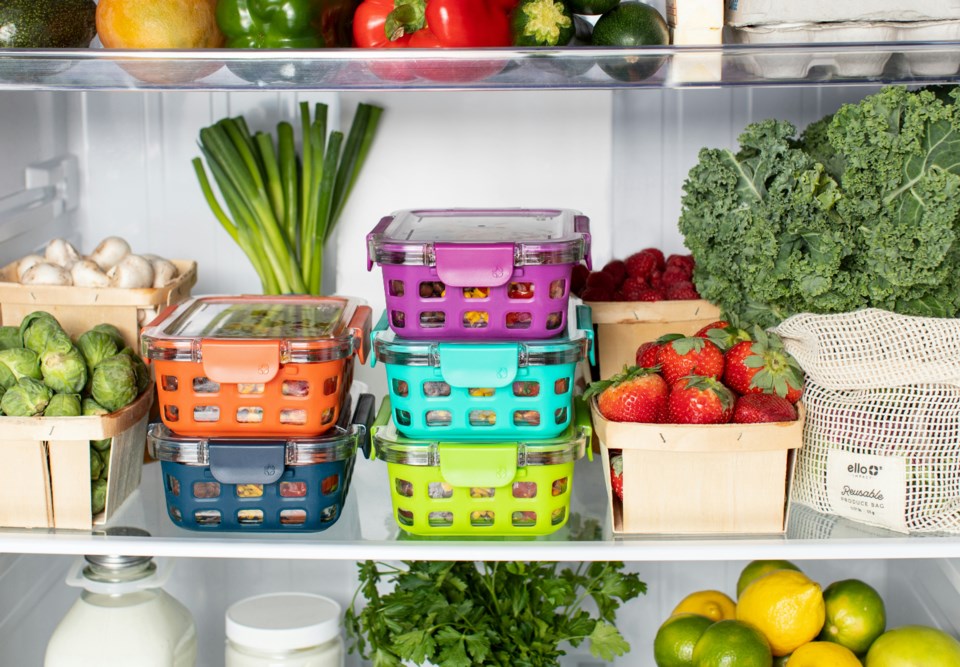The concept of "negative calorie" foods suggests that certain foods require more energy to digest and metabolize than they provide in calories, resulting in a calorie deficit. Even though there isn’t any valid scientific evidence of this, foods that are considered calorie negative are mainly healthy, nutrient dense, good sources of fibre with high water content.
Even if one doesn’t lose weight, the following foods are very good for us and provide good sources of vitamins, fibre and minerals which are often lacking in the typical North American diet.
When we eat only to satisfy our need for satiation and/or to feed our cravings, the majority of the food we consume may have very little nutritional value. Not only is junk food hard on our digestive system, heart, organs and blood, our pancreas may need to produce more insulin to process it (causing weight gain) and our body may go into an inflammatory response.
Low-calorie, fibre-rich foods can contribute to weight loss indirectly by promoting satiety (feeling full) and reducing net calorie intake. Most of the foods I’ve listed below are not only very low in calories, but are also fiber-rich prebiotic foods, which means they are excellent for gut health in conjunction with probiotic foods. Some prebiotic and probiotic foods are discussed here.
Leafy greens like spinach, kale, arugula and lettuce are extremely low in calories and rich in vitamins, minerals and fibre. They are excellent for filling you up with few calories. Be mindful that what you put on the salad may be full of unhealthy fat, corn syrup, sodium, artificial colours or flavours. My favourite homemade blended salad dressing consists of olive (or avocado oil), lemon juice, apple cider vinegar, crushed garlic, dry mustard and maybe a bit of yogurt and a smidge of honey.
Celery is primarily water and has very few calories but because it is full of fibre and is a prebiotic food, it is good for our digestive health. It is also an antioxidant. Chewing and digesting celery may burn more calories than it provides.
Cucumbers are low in calories and high in water. The contain potassium, vitamins C and K. They are great in salads, as a snack or marinated in vinegar. Those who take blood thinners should be careful with too much cucumber consumption because vitamin K assists in blood clotting.
Broccoli is low in calories, nutrient-dense and high in insoluble fibre which means it takes longer to digest (burning more calories) and keeps us feeling full longer. It is an anti-oxidant, anti-inflammatory food, heart healthy and one of the best vegetables for women who are going through menopause symptoms.
Cabbage is a nutritious low-calorie fibre rich cruciferous vegetable. It is a good vitamin source, an antioxidant, contains d minerals potassium and manganese, and supports heart health. It can be used in an assortment of ways from raw to cooked, to fermented.
Carrots are low in calories and high in fibre while being a good source of vitamins and minerals.
Zucchini is a versatile, low-calorie vegetable that can be added to many dishes or baking, or can substitute pasta noodles when spiralled.
Apples are low in calories but high in fibre, so can ward off hunger for quite some time. Their sweetness will satisfy a sugar craving. Apple juice, however, is not the same as it is high in sugar with no fibre.
Tomatoes are a low calorie, nutrient-dense, high fibre antioxidant fruit but one must exercise caution if one has health issues like arthritis. Tomatoes fall into the category of night shades which can exacerbate arthritis.
Berries such as strawberries, blueberries, blackberries and raspberries are added to this list because they are rich antioxidant sources and full of fibre.
Mushrooms are low calorie, rich in vitamins and minerals, and are a good source of anti-oxidants. They also help immune function and protect against inflammation. Even though mushrooms are delicious fried in butter, they are more nutritious added to dishes.
Watermelon is low in calories because it is mostly water. It's refreshing and can help keep you hydrated.
Oranges are full of fibre, are an excellent source of vitamin C and low calorie (compared to other fruits).
Grapefruit is a good source of vitamin, low calorie and may aid weight loss due to its presumed effect of lowering appetite. Be careful with grapefruit if you are on heart medication.
Fiber-rich foods require more time and energy to digest, so they're better equipped to stave off hunger than their processed counterparts. Excellent fibre sources may also include whole grains (preferably not wheat), nuts and seeds (unsalted).
While the above-mentioned foods are low in calories and should be part of a healthy diet, it's important to note that no food is actually negative in its calorie content, meaning that eating it won’t cause weight-loss on its own. Weight management depends on overall calorie intake, calorie expenditure and lifestyle choices. In addition to low-calorie eating, we must exercise, manage our stress, get enough sleep and stay hydrated.
Please be wary of the latest diet fads promoted on social media. The issue of weight gain and loss is quite complicated and there are many contributing factors. As weight gain is not an overnight affliction there is no such thing as a quick fix to weight-loss. Please choose healthy science based weight-loss protocols.
Claire Nielsen is a health coach, author, public speaker and founder of www.elixirforlife.ca. The information provided in the above article is for educational purposes only and is not a substitute for professional health and medical advice. Please consult a doctor, health-care provider or mental health practitioner if you're seeking medical advice, diagnoses and/or treatment.




